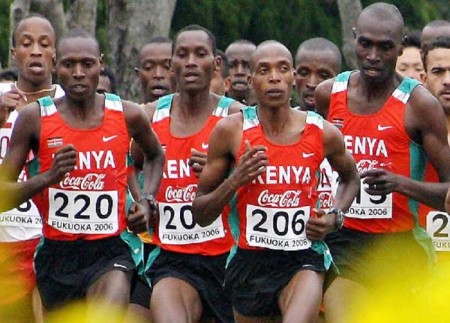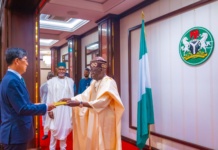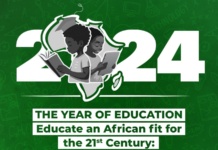
Sports apparel manufacturer Nike is raising eyebrows over cash it pays to Kenya’s athletics federation, Athletics Kenya, which appears to have been siphoned off by Kenyan officials with the American company’s blessing.
Under the terms of their contract, the athletics company, which has enjoyed a more than two decade long relationship with Kenyan athletics, supports Athletics Kenya to the tune of $1.3m-$1.5m per year. The money is used to help train and support poor Kenyan athletes who dream of running their way out of poverty. But after Chinese company Li-Ning made a competitive offer, Nike allegedly came up with $100,000 in “honorariums” each year and a one-time payment of $500,000, which was referred to as a “commitment bonus” and, reports the New York Times, was immediately withdrawn by Kenyan officials and kept off the books.
Kenya has a reputation for having an entrenched system of corruption, and the east African nation has been threatened with sanctions from Western countries in the recent past. The government is currently in the midst of a nationwide anti-corruption campaign. Thus far, Nike has not cooperated with Kenya’s investigation into the matter amid suspicions that they intentionally made the money easy to embezzle out of the federation.
John Githong, a leading voice against corruption in Kenya, is urging the US to investigate Nike, saying it would be “hypocritical” if it doesn’t. He added that language like “commitment fees” and “commitment bonuses” are “used to dress up bribes traditionally.”
In the meantime, three Kenyan athletics officials accused of taking money from Nike have been suspended.
The report also mentions that Li-Ning, while trying to court the Kenyan contract, paid out $200,000 which promptly disappeared:
Soon after complaining to Nike, officials at Kenya’s running federation struck a new sponsorship deal with the Li-Ning Company, a Chinese sports empire founded by a famous gymnast, Li Ning. A marketing agent, working as a middleman between the company and the Kenyan federation, then sent nearly $200,000 to Athletics Kenya, money that a top official quickly withdrew.
The middleman turns out to be Papa Massata Diack, son of Lamine Diack, who is currently banned for life from the IAAF (athletics’ ruling body). According to documents obtained by the New York Times, Kenyan officials worked to secure the $500,000 commitment bonus in part to pay back Li-Ning.
Nike, for their part, hasn’t exactly concealed that the payments took place. The commitment bonus was right there in their contract, and the honorariums were earmarked for travel expenses and other specific uses when they were sent over. The Times spoke to analysts who told them that the deal between Nike and the Kenyans was probably not liable to be prosecuted or investigated under the Foreign Corrupt Practices Act, and there are reportedly no plans for American officials to get involved.
Nike’s clout within the sport is substantial, and they constantly flex their muscles. They’ve threatened to sue people for simply removing their ‘swoosh’ trade mark from photos, booted a racer from the USA World Championship team for refusing to wear Nike gear, and prompted a protest from racers for allegedly buying a race.
As for this case, the specifics are murky. Obviously the Kenyan officials who made off with the money are at fault, but Nike’s role in sanctioning or not sanctioning that corruption is unclear, and might not ever become clear. The New York Times story cites multiple people who refused to speak up on or off the record for fear of their lives. It would be naive to believe that Nike could have had no idea that its generous payments could be so easily misappropriated, since Athletics Kenya has had corruption problems as long as it has existed.








